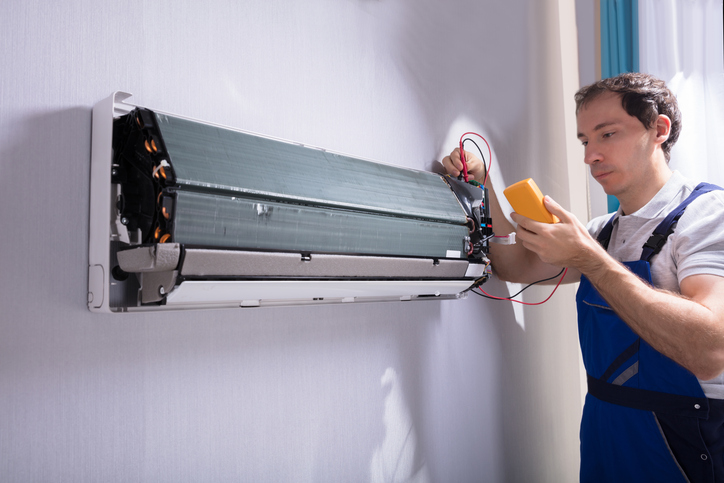
How to Test an Air Conditioner Compressor?
An air conditioner is essential for maintaining a comfortable indoor environment, particularly during hot weather. At the core of every air conditioning system is the compressor, a critical component responsible for compressing refrigerant and facilitating the cooling cycle. When your AC unit is not cooling effectively, it could indicate an issue with the compressor.
So, how do you test an air conditioner compressor to determine if it is functioning properly? This comprehensive guide will take you step by step through all the essential details you need to understand, covering:
- The function of a compressor in an air conditioning system.
- Common signs of compressor failure.
- A detailed, step-by-step process for testing your AC compressor.
- Troubleshooting and repair options if the compressor is faulty.
- Preventative maintenance tips to keep your compressor in top shape.
If your air conditioner isn’t performing at its best, this guide will help you diagnose the problem by teaching you how to test an air conditioner compressor effectively.
Understanding the Role of an AC Compressor
The compressor is often called the “heart” of an air conditioning system because it pumps refrigerant through the system, enabling heat exchange and cooling. Here’s how it works:
- The compressor pressurizes the refrigerant, increasing its temperature.
- The hot, high-pressure refrigerant gas moves to the condenser coils, where it releases heat and turns into a liquid.
- The liquid refrigerant travels to the evaporator coils, where it absorbs heat from indoor air and evaporates back into a gas.
- The compressor then recycles the refrigerant, starting the process again.
Without a functioning compressor, the refrigerant cannot circulate, and your AC will fail to cool your home properly. This is why testing your compressor when you experience cooling issues is crucial.
Signs That Your AC Compressor May Be Failing
Before learning how to test an air conditioner compressor, it’s important to identify the symptoms of a failing compressor.
Insufficient Cooling or Warm Air from Vents
- If your air conditioner is running, but your home isn’t cooling effectively, a faulty compressor may be to blame.
- A damaged compressor cannot properly circulate refrigerant, which leads to warm or insufficiently cooled air.
Loud or Unusual Noises
- A healthy compressor operates with a steady, low hum. If you hear rattling, clanking, or grinding sounds, it may indicate loose or damaged internal components.
- A clicking sound when the AC turns on could mean the compressor is struggling to start.
AC Unit Frequently Trips the Circuit Breaker
- If the compressor motor fails, it may draw excessive power, causing your home’s circuit breaker to trip repeatedly.
- A short-circuited compressor can lead to electrical hazards and should be addressed immediately.
Refrigerant Leaks or Oil Stains
- If you notice liquid pooling around your AC unit, it could be a refrigerant or oil leak.
- Since refrigerant is essential for cooling, leaks can significantly reduce system efficiency and may indicate a failing compressor.
Compressor Won’t Start, or AC Won’t Turn On
- If your air conditioner refuses to start, the compressor may have failed completely.
- In some cases, a damaged capacitor or relay switch could prevent the compressor from engaging.
If you notice any of these warning signs, follow the steps below to learn how to test an air conditioner compressor and determine if it needs repair or replacement.
How to Test an Air Conditioner Compressor: A Step-by-Step Guide
Testing an AC compressor requires a multimeter, a device used to measure electrical resistance and continuity. Carefully follow these steps to check if your compressor is functioning correctly.
Step 1: Gather Your Tools
Before testing your compressor, make sure you have the following:
- A digital multimeter (available at hardware stores)
- A screwdriver (for removing the AC panel)
- Insulated gloves and safety goggles
Step 2: Turn Off the Power to the AC Unit
- For safety, locate the power switch on your AC unit or turn off the corresponding breaker in your electrical panel.
- Wait a few minutes to allow the unit to discharge any stored electricity.
Step 3: Access the Compressor Terminals
- Remove the faceplate of your AC unit using a screwdriver.
- If your unit has an electrical access panel, remove it to expose the compressor wiring and terminals.
Step 4: Inspect the Compressor for Visible Damage
- Check for burnt wiring, melted insulation, or loose connections.
- If you notice severe damage, the compressor may need to be replaced rather than tested.
Step 5: Locate the Compressor Terminals
Inside the access panel, you should see three terminals labelled:
- C (Common)
- R (Run)
- S (Start)
Step 6: Perform the Multimeter Resistance Test
To perform the multimeter resistance test, start by setting the multimeter to the ohms setting. Begin by placing the red probe on the C (Common) terminal and the black probe on the S (Start) terminal.
A normal reading should fall between 0 and 30 ohms; anything above this range may indicate a faulty compressor.
Next, move the black probe to the R (Run) terminal while keeping the red probe on the C (Common) terminal. This measurement should remain below 30 ohms.
Finally, test the connection between the S (Start) and R (Run) terminals. If the reading is excessively high or does not register at all, the compressor is likely defective.
Step 7: Test for Continuity to Ground
Place one probe on the compressor’s metal casing and the other on each of the terminals.
If the multimeter detects continuity (closed circuit) between a terminal and the casing, the compressor is shorted and should be replaced.
What to Do If Your Compressor Fails the Test?
Call an HVAC Technician
- Compressor repairs are complex and should only be handled by professionals.
- An HVAC technician can diagnose whether a repair or full replacement is necessary.
Consider Replacing the Compressor
- If your compressor is beyond repair, replacing it may be a cost-effective solution.
- However, if your AC unit is more than 10 years old, it may be better to replace the entire system.
Check for a Warranty
- Some AC compressors have manufacturer warranties that cover repairs or replacements.
- Contact your AC brand’s customer service to check your warranty status.
Preventative Maintenance Tips for AC Compressors
Clean or Replace Air Filters Regularly
One of the simplest yet most effective ways to maintain your air conditioner and protect the compressor is to clean or replace the air filters regularly. The air filter prevents dust, dirt, pet dander, and other airborne particles from entering your HVAC system. Over time, filters can become clogged, restricting airflow and forcing the compressor to work harder than necessary.
Restricted airflow causes several issues, including:
- Increased energy consumption as the system struggles to push air through clogged filters
- Poor indoor air quality, leading to allergies and respiratory issues
- Overheating of the compressor, which can result in system failure
Experts recommend checking your air filter every 1-3 months, depending on usage, household conditions, and whether you have pets or live in a dusty environment. If the filter appears dirty or clogged, replace it with a new one or clean it if it’s reusable.
Keep the Outdoor Unit Free of Debris
The outdoor condenser unit plays a crucial role in heat dissipation, allowing your AC system to release heat outside. If dirt, leaves, grass clippings, or other debris accumulate around the condenser unit, it can obstruct airflow and cause the compressor to overheat.
To prevent this issue, follow these steps:
- Regularly inspect and clean the area around the outdoor unit, ensuring there is at least two feet of clearance on all sides.
- Remove any leaves, grass, or debris that may have accumulated on or around the unit.
- If the condenser coils appear dirty, gently clean them using a soft brush or coil cleaner. Refrain from using high-pressure water, as it may cause the fins to bend or sustain damage.
- Trim any nearby vegetation, such as bushes or trees, to prevent them from obstructing airflow.
By maintaining a clear and clean outdoor unit, you reduce strain on the compressor and allow your AC system to operate at peak efficiency.
Check Refrigerant Levels to Avoid Compressor Strain
The refrigerant is a critical component of your AC system, as it absorbs heat from your home and releases it outside. Low refrigerant levels can place excessive strain on the compressor, causing it to work harder to maintain cooling efficiency. If the refrigerant level drops too low due to a leak, the compressor may overheat and fail prematurely.
Some warning signs of low refrigerant levels include:
- Warm or insufficiently cooled air coming from your vents
- Accumulation of ice on the evaporator coils or refrigerant tubing.
- Hissing or bubbling sounds, which may indicate a refrigerant leak
- Higher-than-normal energy bills, as the compressor runs longer to compensate for the reduced cooling capacity
If you suspect a refrigerant issue, do not attempt to refill it yourself. Handling refrigerants requires specialized equipment and should only be performed by a licensed HVAC professional. A technician will inspect your system for leaks, repair any damaged components, and recharge the refrigerant to the correct level.
Keeping your refrigerant at optimal levels ensures that your compressor doesn’t overwork itself, ultimately extending its lifespan and maintaining energy efficiency.
Schedule Annual Professional Inspections
Even if your AC unit appears to be running smoothly, routine professional inspections are essential to catch potential issues before they turn into costly repairs. A trained HVAC technician can thoroughly assess your compressor, refrigerant levels, electrical connections, and other critical components to ensure everything is functioning correctly.
During an annual maintenance check, a professional will:
- Inspect the compressor for any signs of wear, overheating, or electrical issues
- Monitor refrigerant levels and replenish as needed to maintain optimal performance
- Regularly clean the condenser and evaporator coils to enhance overall system efficiency
- Test electrical connections and capacitors to prevent voltage fluctuations
- Ensure the thermostat is calibrated correctly to maintain consistent cooling
Regular professional maintenance helps keep your AC system in optimal condition and reduces the risk of unexpected breakdowns during peak cooling seasons.
Avoid Overworking Your AC System
Running your air conditioner at maximum capacity for extended periods can put unnecessary strain on the compressor. To prevent this, consider the following energy-efficient habits:
- Set your thermostat to a moderate temperature (between 72-78°F) to avoid excessive cooling demands.
- Ceiling fans should be used to improve air circulation and reduce the need for constant AC operation.
- Close windows and doors to prevent hot air from entering and cool air from escaping.
- Use blackout curtains or blinds to block out direct sunlight and reduce indoor heat buildup.
By reducing the load on your AC system, you can prevent the compressor from overworking, ultimately extending its lifespan.
Listen for Unusual Sounds or Warning Signs
Your AC system typically operates with a steady hum. However, if you notice strange noises such as clicking, buzzing, rattling, or grinding, it could indicate a problem with the compressor or other internal components.
Common sounds that may signal an issue include:
- Clicking: Compressor struggling to start
- Buzzing: Electrical problems or loose parts
- Rattling: Debris inside the unit or failing components
- Hissing: Refrigerant leak
If you hear these unusual sounds, shut off your AC and contact a professional for inspection. Addressing small issues early can prevent costly compressor damage down the line.
Final Thoughts
Knowing how to test an air conditioner compressor is essential for diagnosing cooling issues in your AC unit. If your air conditioner isn’t working efficiently, performing a multimeter test can help determine whether the compressor is at fault.
If you discover a faulty compressor, don’t delay! Contact a licensed HVAC professional to repair or replace it and restore your home’s cooling comfort.
Looking for reliable AC repair services? McMillin Air offers expert diagnostics, repairs, and maintenance at competitive prices. Call us today for a professional evaluation of your air conditioning system!








0 comments